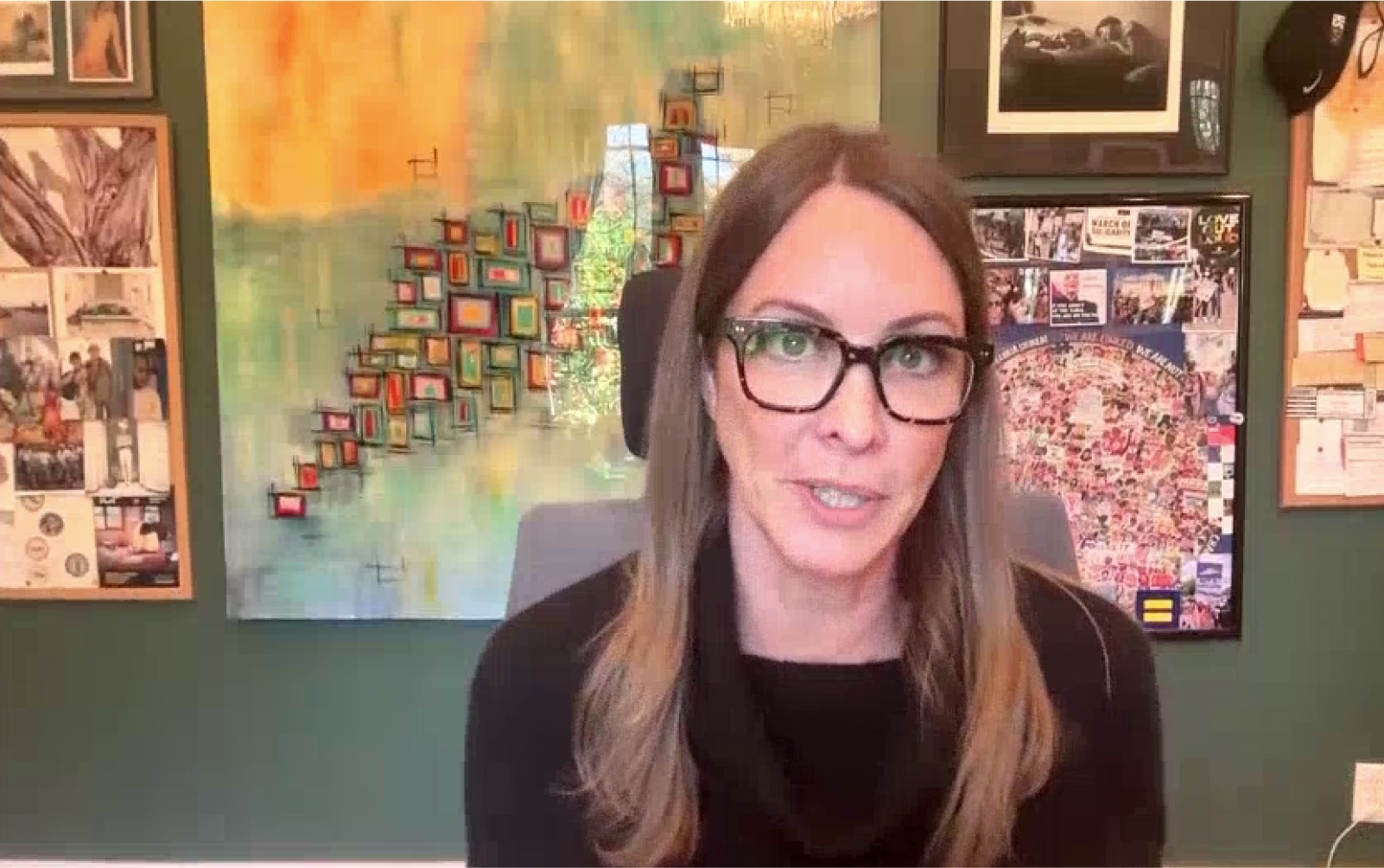July 22nd, 2025
3 min read
In 2018, Michelle Bogan’s passion for workplace advocacy led her to transition from a 25-year career in retail and consulting – including roles at Macy’s and Accenture – into diversity, equity and inclusion (DEI) work.
Today, her company Equity at Work helps mid-market to Fortune 100 companies customize DEI strategies to fit their company culture. Bogan helps companies operationalize DEI into daily business functions, using proprietary analytics to identify workplace bias and blind spots.
Bogan shares her thoughts on DEI in a complex world – and the role of AI.

Bridges and Barriers
Bogan believes AI has the power to be a game-changer in how businesses approach DEI – if it’s done right. “The future of DEI, particularly with AI, holds immense promise, but it requires careful design and intentional strategy,” she says.
First, some context on the evolving DEI landscape: DEI has become a priority for businesses across industries, but in the wake of political shifts – particularly U.S. President Donald Trump’s executive orders targeting DEI initiatives – there’s been confusion about what’s allowed and what’s not. Bogan points out, “DEI efforts are still legal, but the key is avoiding quotas or exclusionary practices. The landscape has shifted, but the need for inclusivity hasn’t.”
Companies are left to navigate these shifting waters, balancing legal compliance with the broader goals of fostering inclusivity. But even amidst this uncertainty, “DEI is still a business imperative,” Bogan says. Companies that overlook it risk more than just compliance issues, they risk losing innovation and talent.
Companies with diverse teams have been shown to outperform their competitors because they tap into a wide array of perspectives and ideas. Diverse teams don’t just make for a better workplace, Bogan says, they create products and services that resonate with broader audiences.
Bogan points to an example in the automotive industry: Toyota’s “soccer mom button.” This innovation – a hatchback door that opens with a single touch – was born from understanding the real-world needs of busy parents with their hands full. “This is what happens when diverse teams design products. They create solutions that speak to more than just a narrow consumer base,” Bogan explains.
The flipside is that companies that backpedal on their DEI commitments face tangible consequences. “Consumer-focused companies that have scaled back DEI initiatives have seen a direct impact on their bottom line,” Bogan notes. As public opinion shifts, customers are voting with their wallets, taking their business to organizations that align with their values.
Diversity is just a measure of difference. It’s not just about gender or race, it’s about making sure all perspectives are included, so businesses can innovate, retain employees, and serve their customers better.
AI in Society
As businesses pivot to meet these challenges, AI presents an enormous opportunity to enhance DEI initiatives. Bogan is optimistic about AI’s potential in professional development, inclusive leadership training and equitable policy design. “AI can revolutionize recruiting and HR processes,” she says. “By removing human biases from the equation, AI has the power to level the playing field for candidates from all backgrounds.”
But AI must be designed inclusively. “If we aren’t careful, we risk building systems that reinforce existing biases,” warns Bogan. This means AI tools must be trained on diverse data sets and the algorithms constantly reviewed and refined to avoid echo chambers or the amplification of bias.
Bogan believes businesses that prioritize inclusion, and use AI to enhance their efforts, will be the ones to lead in the future. “When done right, AI can be a force for good in driving DEI. The challenge is in ensuring that the design is inclusive, unbiased and aligned with broader goals of equity and justice.”




